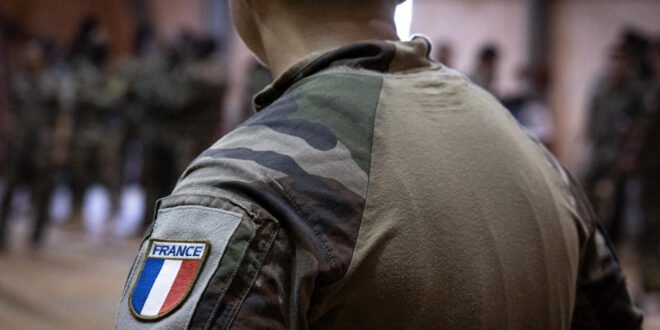The presence of French troops in Niger, a landlocked country in West Africa, is a subject of significant interest and importance in the context of global security, regional stability, and international relations. This deployment is part of France’s broader military strategy in the Sahel region, aimed at combating jihadist groups and supporting local governments in maintaining control over their territories. This article delves into the historical background, objectives, challenges, and implications of French military involvement in Niger, offering a detailed examination of its multifaceted impact.
Historical Context and Evolution
The roots of French military presence in Niger can be traced back to the colonial era when France established control over the region in the late 19th and early 20th centuries. Following Niger’s independence in 1960, France maintained a strategic interest in the country, primarily due to its rich uranium deposits, which are vital for France’s nuclear energy program. However, the nature and scale of French involvement have evolved significantly over the years, especially in the wake of increasing terrorist activities and insurgencies in the Sahel region.
In the early 21st century, the Sahel became a hotbed for jihadist groups, including Al-Qaeda in the Islamic Maghreb (AQIM), Boko Haram, and others, exploiting local grievances and state weaknesses. The situation escalated following the 2011 Libyan crisis and the 2012 Mali conflict, leading to increased instability in the region. In response, France launched Operation Serval in Mali in 2013, which was succeeded by Operation Barkhane in 2014, expanding its counter-terrorism efforts to include Niger and other Sahel countries.
Objectives of French Military Engagement
The primary objective of French troops in Niger is to assist the Nigerien government in combating jihadist groups and securing its vast and porous borders. This involves a range of activities, including intelligence gathering, direct combat operations, training Nigerien forces, and providing logistical and air support. By stabilizing Niger, France aims to prevent the spread of terrorism to neighboring countries and beyond, safeguarding regional and international security.
Furthermore, France’s engagement in Niger is also driven by the desire to protect its strategic interests in the region, particularly access to uranium resources. Ensuring a stable Niger is crucial for the uninterrupted supply of uranium, which is a key component of France’s energy strategy. Additionally, by maintaining a significant military presence in the Sahel, France asserts its role as a leading global power and a pivotal security provider in Africa.
Challenges and Controversies
The French military operation in Niger is not without its challenges and controversies. One of the main issues is the complexity of the insurgency in the Sahel, which is not only rooted in jihadist ideology but also intertwined with ethnic conflicts, economic hardships, and political grievances. This multifaceted nature of the crisis makes it difficult for military intervention alone to achieve lasting peace and stability.
Moreover, the presence of foreign troops on African soil is a sensitive issue, evoking memories of colonialism and raising questions about sovereignty and national dignity. In Niger and across the Sahel, there have been protests and criticism regarding the French military presence, with some viewing it as a neo-colonial endeavor. The effectiveness of French intervention has also been questioned, as jihadist attacks have continued and even intensified in some areas, despite the ongoing military efforts.
The Way Forward
Addressing the complex security challenges in Niger and the broader Sahel region requires a multifaceted approach that goes beyond military intervention. While French troops play a crucial role in counter-terrorism efforts, there is a growing consensus on the need for a more comprehensive strategy that includes economic development, governance reforms, and conflict resolution initiatives. Strengthening the capacity of local governments to deliver basic services, promote inclusive development, and address the root causes of conflict is essential for achieving long-term stability.
In this context, the role of French troops may evolve to focus more on training and supporting Nigerien forces, rather than direct combat operations. This shift would align with the principles of national sovereignty and self-reliance, empowering Niger and its Sahel neighbors to take the lead in securing their territories. International cooperation, involving not only France but also other global and regional actors, is critical in supporting these countries in their quest for peace and development.
Conclusion
The deployment of French troops in Niger is a complex issue that encompasses historical legacies, contemporary security challenges, and broader geopolitical interests. While the military presence of France in the Sahel has been pivotal in counteracting jihadist threats, it is clear that a lasting solution to the region’s instability requires a holistic approach that addresses the underlying political, social, and economic issues. As the situation in Niger and the Sahel continues to evolve, the international community must remain adaptive and supportive, ensuring that the sovereignty and aspirations of the local populations are at the forefront of any intervention strategy.
Frequently Asked Questions (FAQs)
What operations are French troops involved in Niger?
French troops in Niger are part of Operation Barkhane, a counter-terrorism operation that spans several Sahel countries. Their activities include intelligence gathering, direct combat operations against jihadist groups, training Nigerien military forces, and providing logistical and air support.
How long have French troops been in Niger?
French military involvement in the Sahel region, including Niger, intensified with the launch of Operation Serval in Mali in 2013, which transitioned into Operation Barkhane in 2014. This marked a significant escalation of French military efforts in Niger and the wider Sahel region.
What challenges do French troops face in Niger?
The challenges include the complex nature of the insurgency, which is intertwined with ethnic conflicts, economic hardships, and political grievances. Additionally, the presence of foreign military personnel is a sensitive issue for local populations, sometimes seen as neo-colonialism.
 Inspirescroll
Inspirescroll




